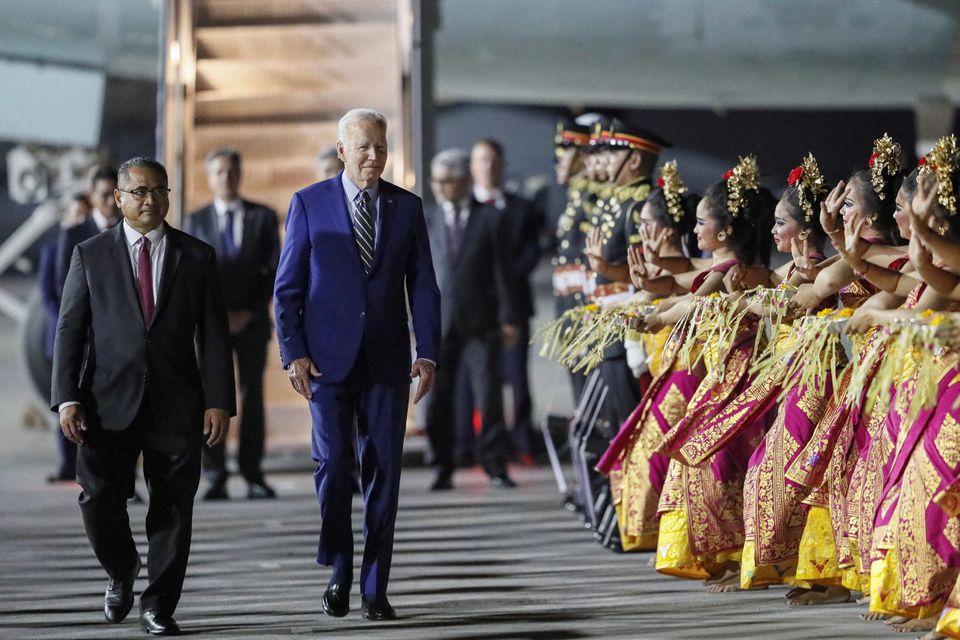By Marc Ramsingh
In the early hours of Tuesday, November 15th, a Ukrainian air defense missile spilled over into a Polish border town. Simultaneously, the 2022 G20 Summit was also occurring on the 15th and 16th, hosted this year by Indonesia.
Formed in 1999, the G20 “is a strategic multilateral platform connecting the world’s major developed and emerging economies”. However, it has transformed into another way for international politics and policies to be addressed. Topics at past G20s have included 2022’s Russian invasion of Ukraine, 2015’s Paris Climate Agreement & climate change, as well as economic policy. With two massive geopolitical events occurring during the week of November 14th, it was critical that President Biden handle these events with poise to affirm the US’s relationship with its allies.
What is the significance of the Russo-Ukraine war spilling on NATO territory?
During the Russo-Ukrainian war, this is the first instance that part of the conflict physically spilled over onto a NATO country’s border. At first, it was suggested that the strike in Poland was intentionally launched by Russia to test NATO’s resolve and willingness to counteract it. This was disproven by several foreign intelligence agencies as well as NATO Article 4 being invoked for the seventh time. It was later determined, however, that this was just a Ukrainian air defense missile that strayed into Poland.
This strike into Poland shows how quickly escalation can happen in this ongoing war. Escalation, especially with President Putin at one end, is dangerous. Putin is demonstrating more and more how he is willing to escalate and create false pretenses for those escalations. This was most evident in October when Russia made claims of dirty bombs for escalation. In a positive light, NATO has demonstrated its willingness to act swiftly against adversaries and to take threats seriously – this accident demonstrates NATO’s unity and commitment to taking all threats seriously. It won’t rush to escalate itself without first gathering all the information.
What’s going on with the G20 Summit?
The conflict between Ukraine and Russia was the most prominent topic on world leaders’ minds during the G20, with a majority of nations condemning Russia’s invasion of Ukraine “in the strongest terms” and demanding unconditional withdrawal. This further shows how even Russian allies aren’t pleased with President Putin’s actions, likely leading to the downfall of both his and Russia’s reputation on the world stage.
With the theme of the 2022 G20 being “Recover Together, Recover Stronger” it’s no surprise that economic policy is also at the forefront with almost all governments fighting inflation brought on by COVID-19. The United States Treasury recently raised interest rates to 7.7%, fighting inflation and a potential worldwide recession. The White House came out saying that they “will take coordinated actions to advance an agenda for a strong, inclusive and resilient global recovery and sustainable development that delivers jobs and growth.” This is vital to keeping the world economy in order combatting inflation, and keeping the US and its allies able to conduct their foreign goal & missions.
Did President Biden have a successful G20?
Finding common ground to quell tensions was good for President Biden.
President Biden met the new UK Prime Minister Rishi Sunak in person- a very important move given that the UK is a member of the G2O and a key, longstanding ally of the United States. Keeping allies like the United Kingdom close to the US is vital to our international goals, especially with President Biden’s commitment to defend Taiwan.
President Biden did address the Poland strike and handled it well, relying on very dependable and accurate US intelligence. US intelligence was vital in keeping NATO calm, mainly consulting with Poland’s Ministry of Defense on what action to take.
Meeting with President Xi Jinping of China was also pivotal in keeping the relations between the two countries stable, due to previous friction over recognizing Taiwanese sovereignty and increasing Chinese aggression in the South China Sea. A boundary management agreement was reached, specifically that the nations would “manage” the differences without having a military escalation.
Photo Courtesy // Made Nagi/Pool via REUTERS //






